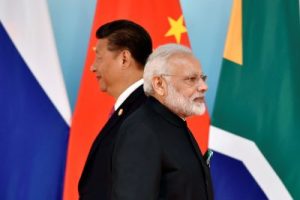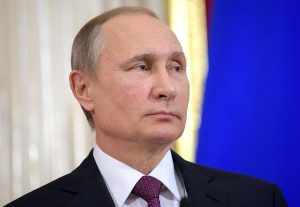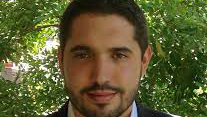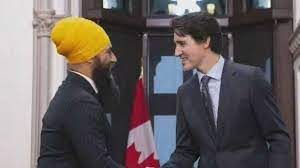Dr. Lisa Sundstrom’s new book explains how non-governmental organizations mediate issues in global governance
Prof. Lisa Sundstrom and Laura Henry’s new book, Bringing Global Governance Home: NGO Mediation in the BRICS States combines insights from international relations and comparative politics to explain the dilemmas and strategies of NGO mediation in case studies on HIV/AIDS, climate change, sustainable forestry, and corporate social responsibility.
Prof. Maxwell Cameron comments on how Liberal-NDP agreement could impact the Conservative leadership race
If the Conservatives try to select a new leader and unite the divided party, the Liberals might feel less vulnerable. “If they do that, then that really is good for the Liberals, and then the Liberals can afford the association with the NDP; they’ll still be occupying the middle ground,” said professor Maxwell Cameron.
Dr. Alan Jacobs selected as new Department Head
We are thrilled to announce that Dr. Alan Jacobs has been selected as the next Head of the Department of Political Science. Dr. Jacobs will serve as Department Head starting on July 1, 2022 for a three-year term.
UBC Political Science student Danilo Angulo-Molina selected to The Cansbridge Fellowship
Congratulations to Danilo Angulo-Molina who was selected to The Cansbridge Fellowship earlier this term. “As an incoming 2022 Fellow, I look forward to obtaining the necessary knowledge and rare skills that will enable me to pursue new solutions to advocate and empower larger numbers of vulnerable communities worldwide,” Angulo-Molina writes.
The paradox of China–India relations
Prof. Yves Tiberghien and undergraduate student Meghna Srivastava write on relations between China and India, which have been divided by both security tensions and opposite alliances but took a major step forward in March.
Disrupted Order: G20 Global Governance at a Time of Geopolitical Crisis
Prof. Yves Tiberghien argue that leaders of major countries have increasingly engaged in cognitive dissonance: there is a fast-growing gap between their continued official support for G20 procedures and their
refusal to cooperate with each other.
Prof. Michael Byers says Russia is unlikely to consider an incursion along the icy frontier with Canada
“It’s all quiet on this side of the Arctic and likely will remain that way,” Prof. Michael Byers said. “The primary military mission in the Canadian Arctic is search-and-rescue. It’s so far from Russia, and there’s so little incentive for Russian interference there.”
Prof. Lisa Sundstrom: Will Russians Toss Their Leader?
“Mass opposition on its own is likely insufficient to produce regime change in Russia. Organized Russian opposition to Putin has faced crackdowns in recent years that has left their ranks thin and in disarray, with their chief leader, Alexei Navalny, in prison for years to come,” Prof. Lisa Sundstrom writes for The Tyee.
Scope Conditions diagnoses democracy’s representation gap with Dr. Sergio Montero
In this episode of Scope Conditions, Professors Alan Jacobs and Yang-Yang Zhou ask: what happens when your favorite candidate isn’t even running? Guest Dr. Sergio Montero argues that, if we want to understand representation, it’s helpful to take a step back from the outcomes voters get and to start thinking about the alternatives available to them.
Prof. Gerald Baier comments on the confidence and supply agreement announced by the Liberals and NDP
According to Professor Gerald Baier, both the parties will have victories and accomplishments they can highlight. “But this (agreement) also has the potential to really hurt the NDP going forward, because voters will think, ‘Why would I vote NDP when the Liberals are doing the kinds of things that the NDP would do?” said Professor Gerald Baier.









